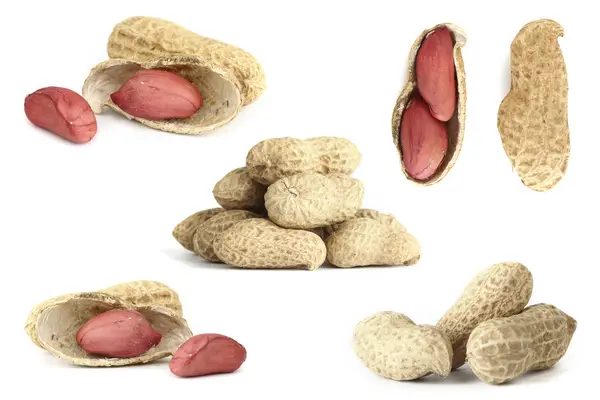Peanuts and peanut butter are nutritious foods packed with nutrients, energy and good fat to help you improve your health.
They comprise healthy fats and vegetable proteins, making them a portion of highly nutritious food to include in your balanced diet.
Eating peanut butter in moderation without exceeding the recommended daily dose and the calorie count will never make you gain weight.
In fact, it can help in your weight loss journey.
However, eating peanut butter excessively can lead to obesity and weight gain over the long run.
Peanut butter is a calorie-dense nutritious food and is an excellent choice for those looking forward to gaining healthy weight.
But, those who wish to lose or maintain weight should consume peanut butter in moderation.
Not all peanut butter variations are a healthy option to include in your diet plan.
Many brands add unhealthy additives like hydrogenated oils and sugars, which might make them tastier but unhealthy at the same time.
Make sure you opt for natural peanut butter only with limited ingredients to ensure healthy intake!
Contents
What do you take in your body when you eat peanut butter?
Peanut butter is a very simple and unprocessed food (mostly) as it is just a paste of roasted peanuts. The peanuts are ground until they turn into a buttery paste.
However, that is not true for every brand as some add unhealthy additives for longer shelf life and added flavor.
These additions can transform it into an unhealthy and fattening food.
So be wary of such brands.
Natural peanut butter is an excellent source of the three primary macronutrients in a balanced diet.
A single serving of peanut butter is two tablespoons (32gm), and this serving size contains:
- 191 calories,
- 7.2 gm proteins,
- 16.4 gm fats, and
- 7.14 gm carbohydrates, of which 1.54 gm is fiber.
A single serving of peanut butter makes up 25% of protein, making it a superb source of plant-based protein.
It is an excellent food for a low-carb diet as it contains only 20% of carbohydrates.
Reduced carbs make it beneficial for type 2 diabetic patients as well.
The fat content in a single serving is high, making it a calorie-dense food, but gladly, more than half of the fat in it is unsaturated fat, making it healthy instead of fattening.
Peanut butter is an excellent option for healthy fat intake and weight gain.
Peanut butter is rich in many other essential minerals and vitamins, including:
- Vitamin B3,
- Vitamin E,
- Vitamin B6,
- Magnesium,
- Folate,
- Manganese,
- Copper, Vitamin B5,
- Biotin,
- Iron,
- Potassium,
- Selenium,
- Antioxidants,
- Magnesium, and
- Aflatoxins.
Its composition makes it a very healthy food source that provides a burst of energy with many beneficial vitamins and minerals.
Is peanut butter not good for weight loss?
Peanut butter is a highly nutritious food that can help you gain weight and also lose weight if taken in moderation.
Weight gain is associated with higher calorie intake.
Since peanut butter is a high-calorie food, eating more than the recommended serving size can lead to a calorie surplus, resulting in weight gain.
However, if eaten in moderation, there are several studies to support that peanut butter can help you lose weight.
According to studies, people likely to use peanut butter and nuts in their diet eat healthier (more fruits and vegetables) and adopt an active lifestyle.
If gaining weight is your goal, you can certainly eat more peanut butter than recommended to increase calorie intake.
Peanut butter can help you lose weight because it is a very filling meal.
It helps you stay full for longer, which means you will not take in any calories for a more extended period.
Including peanut butter in your weight-loss diet can help you lose weight without losing your muscle mass, which is highly recommended for healthy weight loss.
Peanut butter has always been our childhood favorite snack.
How can you abandon it for weight loss?
What if your weight loss plan includes your favorite peanut butter?
Yes! You read it right! Peanut butter can be included in your weight-loss diet if you take it in moderation.
What would be better than eating a healthy weight-loss diet with your favorite food in it?
Is it okay to eat peanut butter every day?
How can one miss their favorite food? But remember, moderation is the key!
You can surely enjoy your favorite healthy snack daily in various ways, but make sure that you do not exceed the daily recommended serving size to reap all its benefits.
The peanut butter you eat every day must be natural to maximize its benefits.
A processed version with lots of unhealthy additives is definitely not an excellent choice to make for daily food intake.
Including peanut butter in your diet can be a great way to curb cravings and thus prevent calorie intake, ultimately helping you lose weight.
There are many options to include peanut butter in your diet. The most common being your childhood favorite peanut butter and jam sandwich.
Other than that, you can use it as a dip to eat celery sticks, carrots, cucumbers, or apple slices.
It can also be added to muffins, cookies, cakes, oatmeal, fruit smoothies, and many other healthy dishes to enhance their taste.
What are the risks of eating peanut butter?
Peanut butter is a very rich food in terms of nutrients, minerals, and vitamins, but it can pose some risks to its consumers.
Some risks associated with peanut butter intake are:
People with peanut allergies cannot consume it, and if ingested, it can lead to severe consequences and even be fatal.
It is high in fats; although primarily healthy, there are also some saturated fats. If consumed in excess for long, it can lead to heart diseases.
Excessive consumption can lead to mineral deficiencies because of the higher proportion of phosphorus, which reduces mineral absorption in the body.

